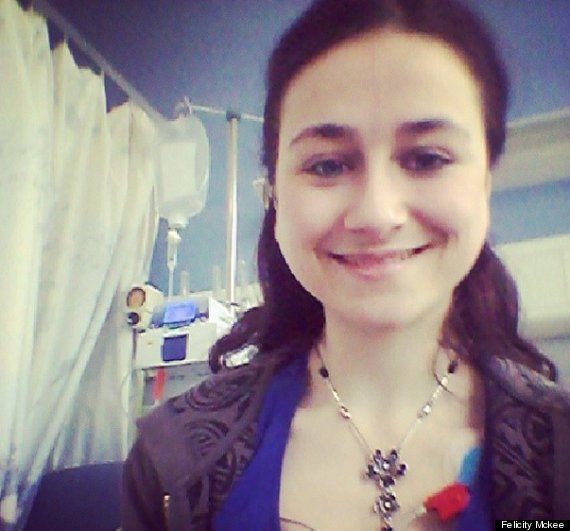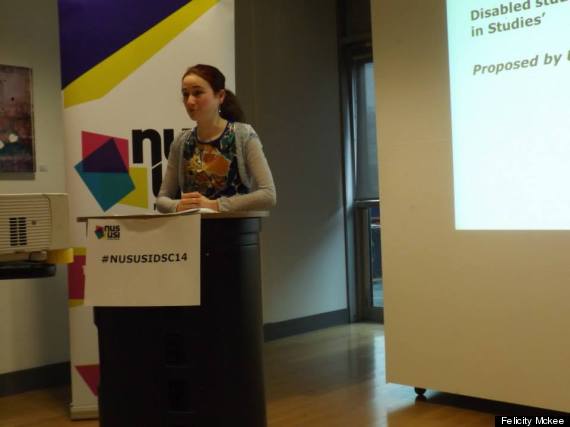"The disorder is basically my everyday life," she tells The Huffington Post UK. "Every aspect of my life is touched by it.
"It my life were a pie chart, it would take up most of it and the other areas would be tinged by it."
The condition has resulted in Felicity suffering from brittle bones, depression and a life-threatening electrolyte instability which means she is admitted to hospital on regular occasions.

It also controls where she lives - stairs are hard as the electrolyte problems cause light headedness and muscle weakness - and whom she lives with - Felicity has to make sure she is around friends who are capable of medically assisting her.
"Hospital admissions interfere with me attending university, exams and coursework," she continues. "And my disability meant I was declared unfit to work. Any job I did have wasn't always happy to accommodate taking medications or time for medical appointments."
Felicity is currently on medical leave from university for the second time, and says a big issue is people assume eating disorders are primarily about weight - when they are actually a mental health problem.
"There was definitely a level of denial as when I initially reached out for help, people would say 'don't be silly, people with eating disorders are skeletal', which is a total falsehood. Even when I was at my worst, I'd tell doctors I wasn't ill as I wasn't really skinny.
"If you aren't thin you aren't seen as ill. But my electrolytes were all over the place and on some occasions and I was at risk of heart attack or cardiac arrest. I was warned even breaking into a sweat could kill me."
Felicity used to be a regular gym goer at university and says even when her BMI was too low, she was complimented on her illness and physique.
"This only feeds the problem," she explains. "The gym certainly didn’t help, and people complimenting me wasn’t useful either. Once it became the unspoken secret around the student village, and people then used it as a reason to ask diet advice from me, as I was clearly so successful according to them.
"People still think it is a choice. One lecturer told me I chose to be in hospital."
One Priory Clinic doctor previously warned university was a breeding ground for eating disorders due to the amount of freedom and lack of a support network, which Felicity says was the case.
"I could stay away from home, and those close only saw me rarely, so it is easier to hide. People tend to label their food at uni, and I was no different, except mine was in individual portions labelled with calorie content. People assume you are just health conscious, and leave it at that.
"I think there is a general indifference, or a you brought this on yourself attitude among students.
"The issue was that when I needed help once to go to hospital, most people felt I was always in and out of hospital. Once I was left slumped in the middle of a university corridor ringing around for a lift from anyone. I managed to get a friend to go with me, even though she had to leave class and we managed a taxi to Belfast,
"On what should have been my 21st birthday, I was hardly able to walk."

Despite previously keeping her condition a secret, Felicity says she has opened up about her eating disorder in the hope she can escape it.
"Such secrecy only perpetuates the stigma and tightens its grip as you feel unable to speak about it. Sometimes it can be ‘visible’ but it isn’t always. By staying silent and others engaging in silence as well, it allowed me to get away with it for so long.
"Support wasn’t there for me, and so it was easier to be in the grips of this, people knew, but no-one said, it was the unspoken secret.
"Having an eating disorder is a terribly lonely place."
Although Felicity says she is very much still in the grips of the condition, she feels stable, and she is receiving medical support.
"Recovery is like a cha cha, 2 steps forward, one step back."
"But," she adds, "you are still going forward."
No comments:
Post a Comment